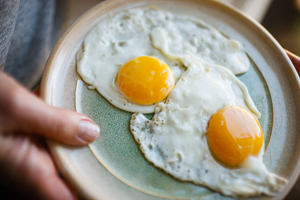Following a Low-Fiber Diet
Overview

What is a low-fiber diet?
A low-fiber diet contains foods that don't create much waste (stool). This diet slows down your bowels and gives them a chance to rest.
Fiber is the part of plants that your body can't digest. It gives bulk to your diet and helps you feel full. It also helps you have regular bowel movements.
But a low-fiber diet is often needed after bowel surgery or when you have a flare-up of a bowel problem. You might be asked to follow this diet if you have Crohn's disease, ulcerative colitis, diverticulitis, or another condition that can cause swelling, pain, or narrowing of your bowels.
In some cases, you may start with a liquid diet (no solid food) and then add low-fiber foods.
Depending on your health problem, you may eat low-fiber foods for just a short time. Or you may need to follow this diet for the rest of your life.
You may need to take extra vitamins and minerals while you're on this diet. Your doctor will let you know if you need these supplements.
What foods are okay to eat on a low-fiber diet?
You can eat most types of food on a low-fiber diet, including meats, white breads, and cooked fruits and vegetables. Your doctor can tell you how much fiber you can eat each day.
Here are some examples of low-fiber foods:
- Cooked red meat, fish, or poultry
- Eggs
- Dairy products, such as milk, ice cream, cheese, cottage cheese, and yogurt (as long as they don't contain fruits or nuts)
- Well-cooked vegetables that don't have skins or seeds
- Canned or cooked fruit with no skin or seeds, such as applesauce
- Fruit juices without pulp
- Refined white breads
- White rice or white pasta
- Saltine crackers
What foods should you NOT eat?
Here are some foods you should not eat while on a low-fiber diet:
- Whole grains, such as bran, oatmeal, and brown rice
- Whole wheat pasta
- Whole wheat or whole-grain breads
- Any foods that have seeds or nuts
- Any raw vegetables
- Foods that cause gas, such as brussels sprouts, broccoli, and cauliflower (raw or cooked)
- Corn
- Granola
- Lentils, split peas, and beans such as black or red beans
- Berries
- Dried fruit, such as prunes, raisins, or figs
- Raw fruit
- Popcorn
Credits
Current as of: September 20, 2023
Author: Healthwise Staff
Clinical Review Board
All Healthwise education is reviewed by a team that includes physicians, nurses, advanced practitioners, registered dieticians, and other healthcare professionals.
Current as of: September 20, 2023
Author: Healthwise Staff
Clinical Review Board
All Healthwise education is reviewed by a team that includes physicians, nurses, advanced practitioners, registered dieticians, and other healthcare professionals.
Topic Contents
This information does not replace the advice of a doctor. Healthwise, Incorporated, disclaims any warranty or liability for your use of this information. Your use of this information means that you agree to the Terms of Use. Learn how we develop our content.
